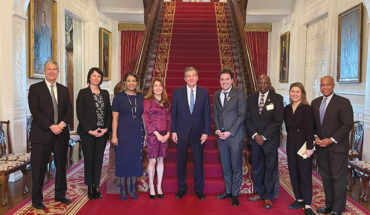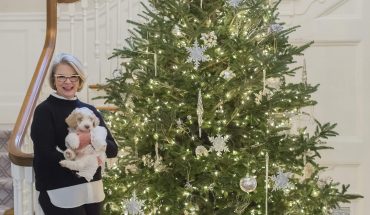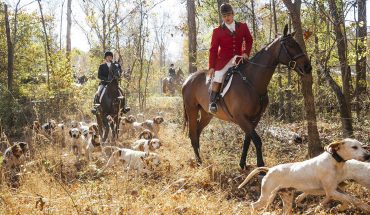by Liza Roberts
photographs by Nick Pironio
In a modest bungalow along the grassy, unmowed edge of Raleigh’s Dorothea Dix Hospital campus, Dave Rose presides over the Triangle’s most comprehensive music and entertainment empire.
Unless you’re a music geek or one of Rose’s many, many friends, you probably don’t know that he is the man behind the curtain at some of the area’s biggest – and most diverse – public events, from Gov. Pat McCrory’s Inaugural Ball to the Out! Raleigh Festival. That he produces free outdoor music festivals like Oak City 7 and Pickin’ in the Plaza, has a role in others like ’Cuegrass, and also manages the careers of artists like Parmalee and Marcy Playground. Or that he gets public Christmas trees lit and bearded Santa Clauses where they need to be; or that he owns and runs Deep South the Bar, the downtown live music venue. His most recent coup, scored just last month: the contract to book all live entertainment for the N.C. State Fair.
“The elder statesman of the Raleigh music scene” – as Chuck Price, the Charlotte-based drummer for the band The Balsa Gliders, calls him – may be “talked about in hushed tones” by music industry folks, but his musical tastes and enthusiasms are anything but snobbish. “Dave’s got a gigantic music tent, and one and all are welcome under it.”
He works hard under that big top, but while music is his business, “really, what’s behind that is a real desire to make our community a better place,” says Virginia Parker, Triangle market manager for Bank of America. Parker first met Rose in 2009 when she was one of four chairs of the Junior League of Raleigh’s North Carolina Governor’s Inaugural Ball the year Beverly Perdue took office. “He walks in with his pierced ears and funky hair and jeans, and I’m going, OK, this guy’s going to help us do the Inaugural? But what he brought to the table was a totally different perspective, a very unique and creative perspective. He wanted to know all about the Junior League, what we would do with the monies raised, and what we wanted to achieve, how we wanted the program to resonate. He put together a music program. And he was paid nothing for his time.”
Rose has been in the public, many-faceted business of music and entertainment here for two decades now, and as he celebrates his company’s 20th anniversary, he’s fired up. “I think the thing I’m most proud of is that I’m still doing it. It has never gotten old to me. I just love that we manage to keep doing this.”
“This” requires a diverse set of skills. From the instinctive ability to spot new talent – his most recent discovery, found in his own bar, is 19-year-old Greenville native Kasey Tyndall, who he says has one of the most distinctive new voices in country music – to crunching numbers for a world tour budget for acts like Bruce Hornsby or Little Feat. “I love all of it,” he says. “There is nothing too big or small. I love it all.”
With his modish, reddish hair and four earrings (two per lobe) Rose looks the part of music industry insider. But his friendly, humble, unabashed enthusiasm is pure fan.
“It’s never been about the money,” Rose says, leaning back in his lived-in, music-poster-covered, creatively untidy office. It’s “the moment when music connects with people” that makes it all worthwhile. “It could be 20 people in a bar or 40,000 people in a soccer stadium in Europe.”
Early days
Deep South got its start in 1995 when Rose founded Deep South Records with friends Andy Martin and Amy Cox. Four years out of N.C. State, their fledgling label had quick success with artists like Five For Fighting, Butch Walker, and Marcy Playground, whose No. 1 hit Sex and Candy shot the label into the big leagues.
Pre-Internet, Rose found artists like these by calling up radio stations and record stores around the country and asking for the names of popular local bands in their markets. He got airtime for his bands the same way. It worked. Deep South did a lot early, and a lot at once. What they didn’t do was leave town.
Though the prevailing advice was to head to L.A., New York, or Nashville, Deep South didn’t. “I believed in this area,” Rose says. And not because he bought the early-’90s prediction that Raleigh could become the “next Seattle” thanks to the success of local musicians like Ryan Adams. Rose says he thought the Triangle would evolve differently – as it has – into a marketplace that creates and nurtures a wide array of music.
From Clay Aiken to Superchunk, Scotty McCreery to Chatham County Line, “we have all of it,” Rose says. Today, he says the area’s musical diversity will be “what sustains us long-term … A lot of places that have a certain sound (Seattle’s grunge; L.A.’s rock) have faded.”
From the beginning, Rose says, he also believed that Raleigh’s confluence of universities and creative industries – from technology to art – made for a music scene with legs. A place with diverse talent and diverse audiences. “This is pretty cool,” he recalls thinking. “I think I’ll stay.”
That bold call was at least in part naïve. “Not knowing what you’re up against is a good thing.” It also keeps your eyes open. When he had a chance to meet the folks behind music-sharing website Napster in 1999, Rose says he realized that the industry was about to change – and Deep South had to diversify. That’s when he started managing bands, too. Soon, clients included Bruce Hornsby, Little Feat, and Stryper. Following those bands to music festivals around the country got him thinking about how to create similar outdoor concerts back home. Today, Deep South puts on 14 free concerts for the community every summer, all paid for with corporate sponsorships.

Deep South’s two free music series, Oak City 7 and Pickin’ in the Plaza, fill Raleigh’s City Plaza with music every Thursday night between Memorial Day and Labor Day.
Community building
“Our message for the summer is that if it’s Thursday, you gotta be here.” Rose, in shorts and an Oak City 7 T-shirt, is talking early on a pleasant evening last spring to a bouncy crew of part-time twentysomething staffers. They’re getting ready to kick off his free Thursday evening outdoor concert series. Rose’s marching orders, boiled down: Be Nice. “I want us to be the friendliest bunch of people ever,” he says. “The only way to get fired is if you’re not smiling. You are the face and the spirit of Raleigh, North Carolina.”
Rose walks the talk, high-fiving everyone he comes across. “Hey man, thanks for being here,” he says to a food truck owner setting up shop. He spots a couple of policemen on foot. “There they are, keeping us safe,” he says, pointing them out, then raising his voice to a friendly holler: “How’s the policing business?” They smile back and saunter over for a chat.
Some of the thousands of music fans who attend Rose’s outdoor shows (this summer, he expects 50,000) begin to filter in. Moms with strollers, college kids, business people in suits. Under a VIP tent in the corner, James Miller, executive director of the LGBT Center of Raleigh, says he appreciates the crowd’s diversity. “This event tends to bring the very polar opposites together,” something Rose is good at, he says. Miller says he’ll never forget how Rose stuck his neck out five years ago to put on Out! Raleigh, the LGBT Center’s giant annual street fair. “They were one of the only production companies that would touch us.”
Miller believes Rose is “an amazing force in the city of Raleigh, bringing a diversity of thought and content; an incredible range of musical styles.”
Raleigh Mayor Nancy McFarlane, standing a few feet away with her rescue dog, agrees. She tries to make it to as many of Rose’s events as she can, and says she was “one of the very first to get on board” the Oak City 7 series, loving the idea of free live music that doesn’t cost the city a dime. Not many could pull that off: “It’s all about Dave.”
The crowd under the tent is packed with Dave fans. Lawyers, entrepreneurs, nonprofit folks. A few mention his magic touch not just with public concerts like this one, but private events too. One elaborate annual party he produces for a young entrepreneurial couple has become semi-legendary. “People who know, know to call Dave,” one says. “He’s definitely got the Midas touch.”
Rose doesn’t overhear any of this praise, because Rose is working. Walking through the crowds, talking to vendors, checking in with the guy doing the lighting, asking fans about the music, taking mental notes. “I’m constantly trying to push it to be better,” he says.
From his earliest days as a musician in a college band, Rose was interested in the business side of things. “I remember the first time someone said, ‘Can I buy one of your cassette tapes?’ It blew my mind. I was like: Let me in.” Rose realized he really loved the business of the business: “I was way better at selling my music than making it.”
Twenty years later, on just about any given day, in some part of the Triangle, Rose has a crew out, getting a show on stage, an event underway. This time of year, it’s nuts. From April to October, Deep South’s payroll explodes from a Raleigh staff of 8 (there are also 2 in Nashville) to include as many as 75 part-time workers.
And if he has anything to do with it, those numbers, and that packed calendar, will only expand. First, he’s got the State Fair to nail down. And he’s got a twinkle in his eye from a recent trip to Austin, Texas with the Raleigh Chamber of Commerce: He wants to take a page out of that city’s playbook and create a Raleigh live music week – like a restaurant week, but with bands instead. “To me, the marriage of art and commerce is the most fascinating thing of all,” he says.
Rose can picture it: Bands finding new audiences; the contagious Raleigh city spirit; the moment when local music connects with local people – one song at a time.
For more information on Deep South’s free concerts and other events: OakCity7.com; pickinintheplaza.com; deepsouthentertainment.com.






